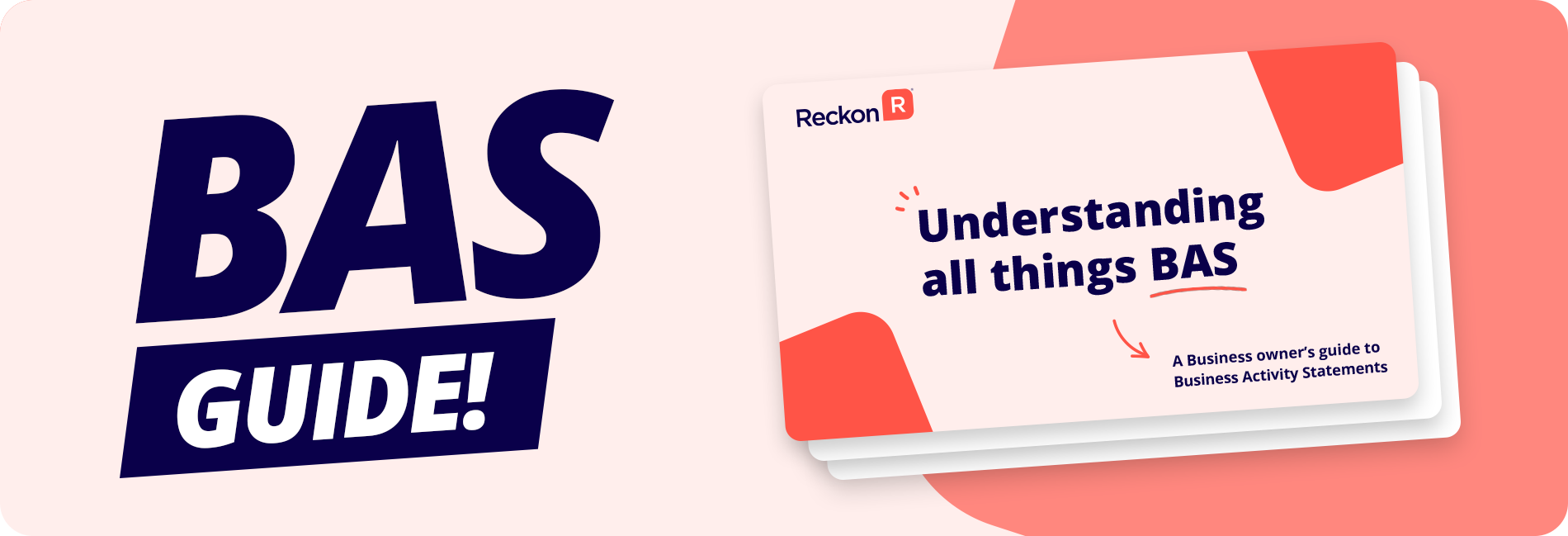TABLE OF CONTENTS
- What’s an accounting basis?
- What is accrual basis accounting?
- Example of accrual accounting
- What is cash basis accounting?
- Example of cash accounting
- Pros and cons of cash accounting
- Pros of cash basis accounting
- Cons of cash basis accounting
- Pros and cons of accrual accounting
- Pros of accrual basis accounting
- Cons of accrual basis accounting
- How does accruals or cash method impact Your BAS?
- Doing your BAS using accrual method
- GST on sales
- GST on purchases
- PAYG withholding
When recording your businesses’ revenue and expenses, you’re likely going to face a choice when it comes to choosing your basis of accounting.
The way you choose to do your accounting will also come into play when you submit your regular BAS.
Let’s unpack your choices and how they work.
What’s an accounting basis?
An accounting basis, also known as an accounting method or accounting principle, refers to the set of rules and guidelines that your business uses to prepare and present financial statements.
Your accounting basis essentially determines when you count a sale as income and when you count a purchase as an expense.
This decision comes down to two main choices – ‘cash based’ accounting or ‘accrual’ based accounting.
The choice of accounting basis can have a significant impact on how financial transactions are recorded, reported, and recognised in your business’s financial statements – including submission of your BAS.
What is accrual basis accounting?
Accrual basis accounting, also known as accrual accounting or simply accrual, is a system of financial transaction recording, whereby a sale is counted and recorded as a sale even before money has changed hands.
Similarly, any business-related purchases are recorded as expenses before the money has actually been paid.
Example of accrual accounting
Let’s say you operate a delivery company specialising in supplying flowers and vegetables. If you use accrual accounting, you will make a bulk purchase of flowers, and before you pay the invoice, you’ll record this in the current accounting period as an expense – despite not having yet paid for it.
If your customers pay for their deliveries by invoice as well, you will deliver the goods and record this as a sale in the current period, despite not yet receiving the money.
What is cash basis accounting?
Cash basis accounting, also known as cash accounting, cash-based accounting, cash method accounting, or simply ‘cash basis’, works in a different way to accrual accounting.
With the cash basis method, you only record sales and expenses when money has actually changed hands. The reason it’s called cash basis is because cash must actually be deposited in order to make a record of revenue or expenses.
Example of cash accounting
Let’s say you own a small retail store selling toys. If a customer comes in and purchases some of your goods and pays you immediately, that purchase is recorded straight away as revenue for that accounting period.
If you purchase supplies for your store and then don’t settle the invoice until the following month or accounting period, that expense will not be recorded as an expense until such time as you’ve paid for it, despite having received the goods and possible sold them for profit.
Pros and cons of cash accounting
The cash basis accounting method is often preferred by smaller businesses for its simplicity and immediate business cash flow visibility. However, it has limitations when it comes to providing a more comprehensive and accurate representation of a businesses’ financial position, making it less suitable for larger or more complex businesses.
Here are some of the most prominent pros and cons associated with cash basis accounting:
Pros of cash basis accounting
- Simplicity
- Less chance of errors
- Cash flow focused
- Possible tax advantages
- Reduced recordkeeping
- Suits smaller businesses
Cons of cash basis accounting
- Limited financial picture
- Distorted profitability
- Not conducive to growth
- Limited reporting accuracy
- Challenges in tracking long-term liabilities
Pros and cons of accrual accounting
When it comes to adopting the accrual accounting method, your business will gain a more accurate and comprehensive financial picture. However, this comes with greater complexity and admin which may not suit all businesses, particularly smaller ones with simpler financial structures.
Pros of accrual basis accounting
- A more accurate financial picture
- Better matching of revenue and expenses
- Better suited to long-term planning
- Better suited to more complex businesses
Cons of accrual basis accounting
- More complex and admin heavy
- Cash flow challenges
- Potential for misleading image of financial health
- Greater recordkeeping burden
- Tax Implications
How does accruals or cash method impact Your BAS?
When you identify your accounting basis and put it into practice, the way you do your BAS will change.
The submission of BAS entails the reporting of your tax obligations to the ATO. This will often include communicating the amount of GST and PAYG that you owe the ATO.
The way your expenses, revenue, GST, and PAYG are reported will depend on the accounting basis you’ve chosen, as defined by the reporting period.
Doing your BAS using accrual method
Let’s look at how the accrual method impacts the way you do your BAS.
GST on sales
Your business will report the total sales made during the period, regardless of whether the payments have been received.
GST on purchases
Your business reports only the actual cash payments you’ve made for purchases during the period, excluding any expenses that have been incurred but not yet paid.
PAYG withholding
Your business reports only the actual cash payments you’ve made for employee wages, excluding any amounts that have been accrued but not yet paid.
























